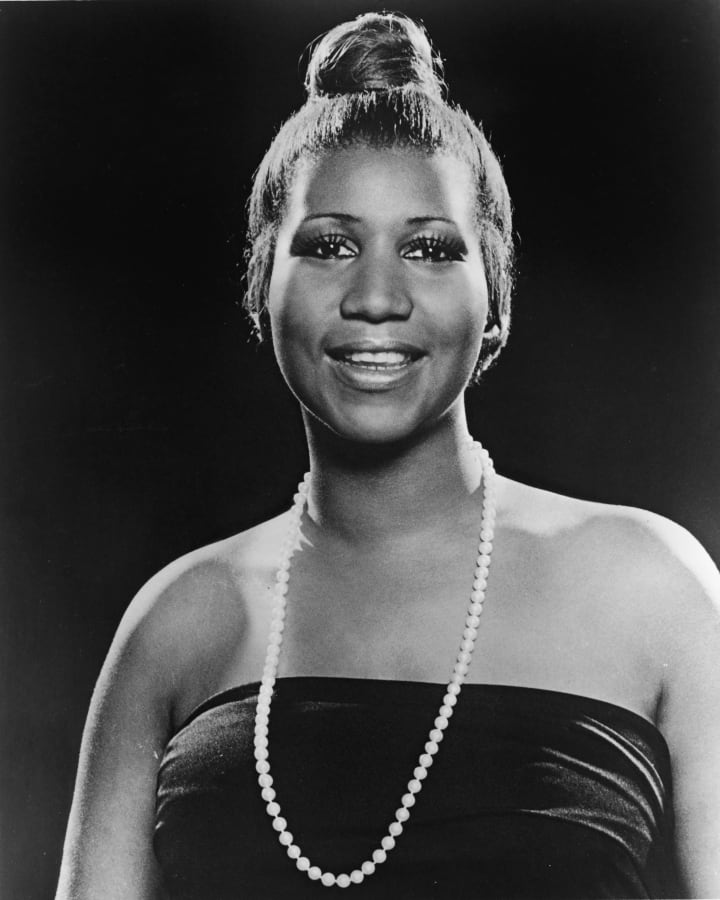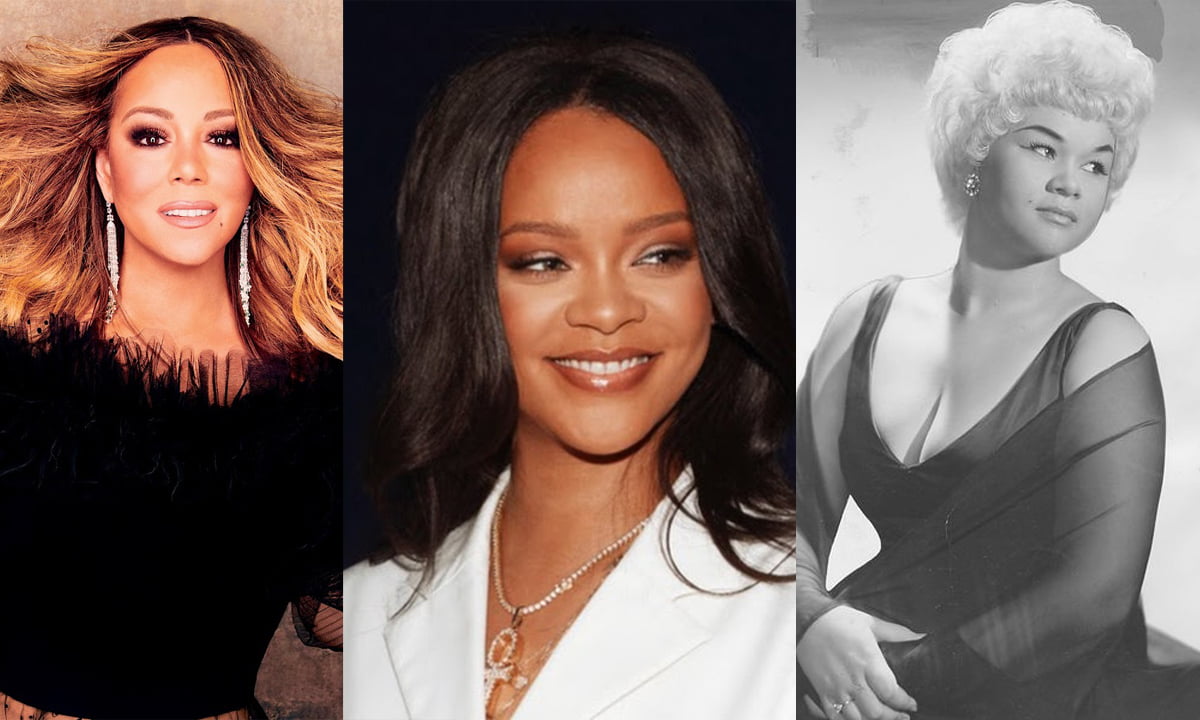When we talk about the 70s, it's impossible not to mention the era's incredible female black singers. These powerhouse voices redefined music, breaking barriers and leaving a legacy that continues to inspire generations. This decade wasn’t just about music; it was a cultural revolution where these women became the voice of change. So, buckle up as we dive into the world of female black singers from the 70s and explore their incredible contributions to the music industry.
Think about it—when you hear songs from the 70s, the first thing that comes to mind is the soulful, raw, and electrifying sound that made people move. Female black singers of this era weren’t just artists; they were trailblazers who used their voices to express the struggles, joys, and hopes of an entire generation. Their music wasn’t just entertainment; it was a movement.
From Aretha Franklin to Diana Ross, the 70s witnessed a lineup of female black singers who dominated the charts, breaking records and setting new standards. This article isn’t just about nostalgia; it’s about celebrating the legends who paved the way for modern musicians and reminding us why their music still resonates today. Ready to relive the magic? Let’s go!
Read also:Vail Mountain Coffee Amp Tea Co Your Ultimate Coffee Haven In The Rockies
Table of Contents
- Introduction: The 70s Era and Female Black Singers
- Biographies of Iconic Female Black Singers
- Aretha Franklin: The Queen of Soul
- Diana Ross: A Legend in Her Own Right
- Teena Marie: The Ivory Queen of Soul
- The Evolution of Music Genres
- Impact on the Music Industry
- Social and Cultural Influence
- Awards and Recognition
- Legacy and Modern Influence
- What’s Next for Female Black Singers?
- Conclusion: Celebrating the Icons
Introduction: The 70s Era and Female Black Singers
The 70s were a transformative period for music, and female black singers were at the forefront of this revolution. This era was marked by a shift in cultural norms, and music became a powerful tool for expression and change. Female black singers brought a unique perspective to the industry, blending soul, funk, and R&B into a sound that captivated audiences worldwide.
Their music wasn’t just about catchy melodies; it was about storytelling. From the struggles of racial inequality to the celebration of love and empowerment, these artists used their voices to speak truth to power. Their influence extended beyond the music charts, shaping the cultural landscape of the decade.
Biographies of Iconic Female Black Singers
Before we dive deeper into their contributions, let’s take a moment to understand the women behind the music. Below is a brief overview of some of the most iconic female black singers from the 70s.
Aretha Franklin: The Queen of Soul
Aretha Franklin, often referred to as the Queen of Soul, was a powerhouse vocalist whose music defined the 70s. Her ability to convey emotion through her voice was unmatched, and her hits like “Respect” and “Think” became anthems of empowerment. Franklin’s influence extended beyond music, as she became a symbol of the civil rights movement.
Diana Ross: A Legend in Her Own Right
Diana Ross, the lead singer of The Supremes, transitioned into a solo career in the 70s and continued to dominate the charts. Known for her elegance and versatility, Ross’s music spanned genres from pop to disco. Her hit songs like “Ain’t No Mountain High Enough” and “Love Hangover” solidified her status as a music icon.
Teena Marie: The Ivory Queen of Soul
Teena Marie, a white singer who embraced the soul genre, gained recognition in the 70s with her unique sound. Known for her collaboration with Rick James, Marie’s music was a fusion of soul, funk, and R&B. Her hits like “I’m a Sucker for Your Love” and “Square Biz” showcased her incredible vocal range and songwriting skills.
Read also:1318 Pecan Ave The Hidden Gem Yoursquove Been Missing
| Name | Born | Genre | Notable Hits |
|---|---|---|---|
| Aretha Franklin | March 25, 1942 | Soul, R&B | Respect, Think |
| Diana Ross | March 26, 1944 | Pop, R&B, Disco | Ain’t No Mountain High Enough, Love Hangover |
| Teena Marie | March 5, 1956 | Soul, R&B, Funk | I’m a Sucker for Your Love, Square Biz |
The Evolution of Music Genres
The 70s saw the rise of several music genres, and female black singers played a crucial role in shaping these sounds. Soul, funk, and R&B became synonymous with the era, thanks to the incredible talent of these artists.
Here are some key genres that were influenced by female black singers:
- Soul: Characterized by its emotional depth and powerful vocals, soul music became a staple of the 70s, with artists like Aretha Franklin leading the charge.
- Funk: Known for its infectious rhythms and danceable beats, funk was popularized by artists like Teena Marie, who brought a fresh perspective to the genre.
- R&B: A blend of soul and jazz, R&B evolved in the 70s to include more intricate arrangements and lyrical depth, thanks to the contributions of female black singers.
Impact on the Music Industry
The impact of female black singers on the music industry cannot be overstated. They broke down barriers, paving the way for future generations of artists. Their influence extended beyond just music, as they became role models for women and minorities worldwide.
Some of the key impacts include:
- Breaking Racial Barriers: Female black singers of the 70s challenged racial stereotypes and proved that talent knows no color.
- Empowering Women: Their music became a voice for women’s empowerment, encouraging self-expression and independence.
- Innovating Music: By experimenting with different genres and sounds, these artists pushed the boundaries of what was possible in music.
Social and Cultural Influence
The social and cultural influence of female black singers in the 70s was profound. Their music became a soundtrack for the civil rights movement, providing a voice for those who felt unheard. Songs like “Respect” and “What’s Going On” became anthems for change, inspiring people to stand up for their rights.
Moreover, these artists used their platforms to address important issues such as racial inequality, gender discrimination, and social justice. Their influence extended beyond the music industry, as they became cultural icons who shaped the world around them.
Awards and Recognition
The contributions of female black singers in the 70s did not go unnoticed. They received numerous awards and accolades, recognizing their impact on the music industry and beyond. Here are some of the notable awards:
- Aretha Franklin: Inducted into the Rock and Roll Hall of Fame in 1987, the first female artist to receive this honor.
- Diana Ross: Honored with a Grammy Lifetime Achievement Award in 2012 for her lasting contributions to music.
- Teena Marie: Nominated for several music awards and celebrated for her unique sound and influence on the soul genre.
Legacy and Modern Influence
The legacy of female black singers from the 70s continues to inspire modern musicians. Artists like Beyoncé, Alicia Keys, and Adele have cited these legends as major influences on their careers. Their music remains relevant today, with new generations discovering and appreciating their timeless classics.
Moreover, the themes explored in their songs—empowerment, love, and social justice—are still relevant in today’s world. Their music serves as a reminder of the power of art to bring about change and inspire hope.
What’s Next for Female Black Singers?
As we look to the future, it’s clear that female black singers will continue to shape the music industry. With new technologies and platforms, artists have more opportunities than ever to share their voices with the world. The legacy of the 70s icons will inspire future generations to push boundaries and create music that matters.
So, what’s next for female black singers? The possibilities are endless. From exploring new genres to collaborating with artists from different backgrounds, the future looks bright for these incredible talents.
Conclusion: Celebrating the Icons
In conclusion, the female black singers of the 70s left an indelible mark on the music industry and beyond. Their contributions went beyond just creating hit songs; they became symbols of change and inspiration. As we celebrate their legacy, let’s remember the power of music to unite, inspire, and transform.
We invite you to share your thoughts in the comments below. Who’s your favorite female black singer from the 70s? How has their music impacted your life? Let’s keep the conversation going and honor these incredible artists by sharing their stories with the world.
And don’t forget to check out our other articles on music history and cultural icons. There’s always more to discover, and we’re here to guide you through it all. So, keep listening, keep learning, and keep celebrating the magic of music!


